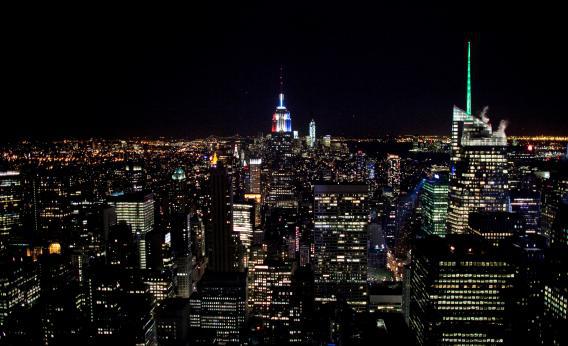Say you live in New York City and you’re just itching to find an obscure gift for that geek in your life who has everything. What do you settle on? How about a newly available, NYC-based, Internet domain—the parts of a URL like “.com” or “.org” —for her website. You know, just the thing that will scream, “I’m tech-savvy, cutting edge, and I live in the Big Apple!”
On Tuesday, the NYC mayor’s office announced that the city had successfully acquired its own unique domain, .nyc, for Web addresses. Starting in late 2013, people, businesses, and organizations that somehow prove their status as bona fide New York residents can obtain websites that are specific to NYC. I’m sure the fight for control over coveted addresses like www.pizza.nyc will be a brutal one.
The city’s official website for this new domain claims that .nyc will be the “ultimate New York City address.” This is because, “Increasingly, the Internet is not only about what you are, but where you are. A .nyc address tells the world you are located in NYC or that your products and services are for New Yorkers.” So, for those who have been looking for a new way to broadcast that they’re from the supposed Capital of the World, then they’re in luck.
NYC isn’t the only city that aims to have its own “geographic top-level domain.” The Internet Corporation for Assigned Names and Numbers, which manages domain space and other organizational matters with the Internet, reports that there could soon be a .tokyo, .berlin, and .london.
Perhaps we’re seeing the birth of a new trend in signaling status and prestige. Only the hippest people and businesses will have a website bearing the domain of their respective city. Maybe your authenticity as a fashion designer might be in question unless your website is marked “.paris.” Similar prestige signifiers already exists online, like having a short Twitter handle, along with a giant social media Klout score that comes with plenty of perks.
To take this to the extreme, such geographic domains could be the next technological step toward creating digital gated communities—that is, you could only access websites registered for a certain location if your device’s IP address originates from within the designated region. Similar restrictions aren’t unheard of. Streaming video services like Hulu, for instance, are constrained by licenses from showing content on devices outside the United States. Now, I’m not saying that these kinds of city-specific, micro-networks will necessarily occur—just that the possibility isn’t so technologically far-fetched. To be on the safe side, you might want to double down on some of that valuable digital real estate and build your own Trump-esque virtual empire in cities around the world.
